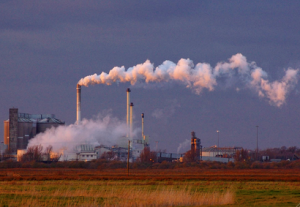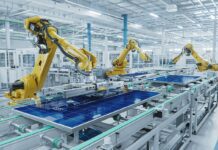A survey of about 400 Australian businesses in the manufacturing, services and construction sectors found that 70% of the participants had not reduced their carbon intensity in response to the carbon tax implemented almost a year ago.

As the carbon tax approaches its first anniversary this July, the Australian Industry Group (AI Group) released the findings of a survey conducted in April and May, which revealed that low levels of domestic demand and strong competition from markets abroad have constrained most businesses from passing on any cost increases related to the carbon tax to their customers.
“One year after the introduction of the carbon tax a new Australian Industry Group survey has highlighted the extent to which this unnecessarily high levy has negatively impacted on business competitiveness. With Australian businesses about to begin two more years with a fixed price carbon tax, the survey adds to the mounting case for an immediate switch to an emissions trading scheme,” says Ai Group Chief Executive, Innes Willox, in a media release.
Willox says “the ability of businesses to rapidly reduce their energy intensity or to mitigate their energy costs is limited” due to the following reasons determined by the survey: First, some businesses have already established energy efficiency measures before, in response to several years of rising energy costs, as well as the anticipated carbon constraints.
Second, businesses have also expected the carbon price to fall, possibly to zero over the next couple of years, which could mean the return on further expenditure to improve energy efficiency.
Third, they cited their financial constraints and the difficulty in accessing government grants which hindered them from putting new carbon reduction measures in place.
Fourth, some businesses have already assessed themselves to be low energy users, which is why they do not place a high priority on reducing energy intensity.
However for those businesses that were successful in reducing their carbon intensity, the following measures have been taken: More energy efficient practices have been adopted by 77% of the businesses, 38% made their products or services more energy efficient, and 20% had invested in more energy efficient equipment.
“For most businesses the high fixed carbon tax, rising from $23 to $24.15 from 1 July, has so far succeeded in only reducing profits rather than encouraging change,” says Mr. Willox.
Willox says that doing away with a fixed carbon tax and replacing it with an internationally linked emissions trading scheme should be on the top agenda of the government post-election.
“This would immediately cut carbon costs by two thirds and boost business competitiveness.”
“Many countries and regions now have their carbon prices set by the market – and they are all significantly lower than Australia’s fixed price carbon tax. At more than three times Europe’s price and more than four times emerging Chinese prices, Australia’s current carbon tax is unsustainable,” Mr Willox said.
Read the full report of the AI Group survey here.



















